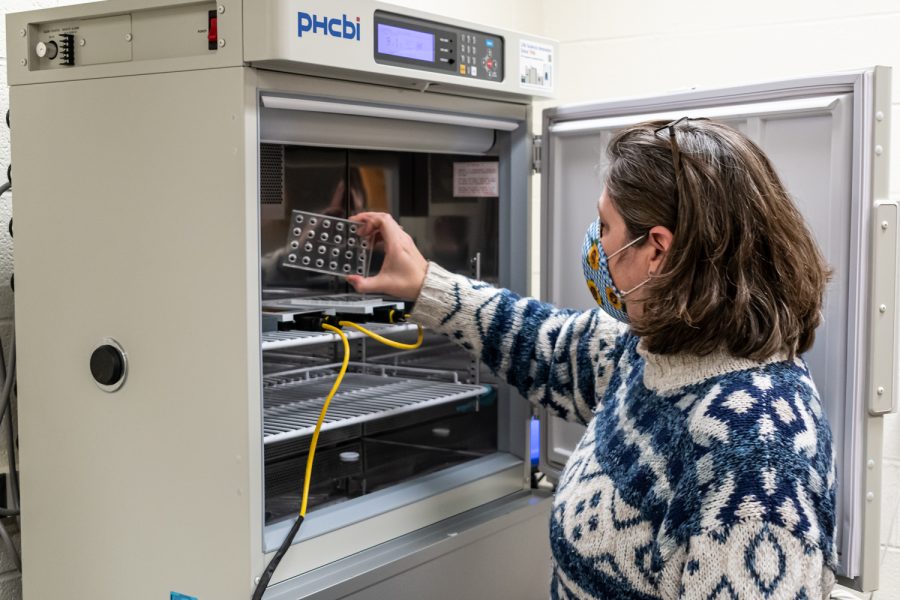Grant to fund renovations, aquatic research projects
Facility research covers evolution, physiology, ecology of any aquatic animal
Erica Crespi, principal investigator for the grant and biology associate professor, said the grant was submitted two years ago and approved last year.
December 2, 2021
WSU researchers received a grant from the M.J. Murdock Charitable Trust that will fund Eastlick Hall renovations, including a new aquatic research facility and the installation of aquatic phenomics system (APS) technology.
The facility submitted a grant proposal to the trust in November 2019 to the trust, which is a nonprofit organization located in the Pacific Northwest. Eleven different researchers were on the proposal, and it was approved in June 2020, said Erica Crespi, principal investigator for the grant and associate professor of biology for the College of Arts and Sciences.
Researchers also submitted a grant proposal to the National Science Foundation in August so the facility can fund undergraduate summer internships and independent research, Crespi said.
Research within the facility will cover any aquatic animal like invertebrates, marine invertebrates and freshwater invertebrates. It will include research ranging from evolution, physiology and ecology, Crespi said.
“This is a very unique facility,” she said. “There’s a lot of facilities like these for zebrafish, and then we have specific facilities for trout and salmon. But the nice thing about this place is that it’s flexible enough to do research on any aquatic animal.”
One current research project conducted in the facility is discovering how increasing salts in freshwater systems affects amphibians — this is Crespi’s main focus.
The increase in salt is due to runoff from deicing salts used on roads. Sea level rise and other industrial wastes create salts, which make the aquatic environment stressful for amphibians. The study will investigate how differences in salinity affect amphibian growth, she said.
One of the biggest purposes of the facility is understanding how climate change and its related impacts alter an aquatic animal’s ability to perform basic behaviors in its environment, said Allison Coffin, co-principal investigator on the grant and neuroscientist in the College of Veterinary Medicine at WSU Vancouver.
Coffin is currently leading a study in collaboration with the U.S. Fish and Wildlife Service that will focus on rearing healthier Chinook salmon. The research will aim to understand how hatchery conditions for Chinook salmon along the Columbia River Gorge impact their ability to orient and swim properly.
“While the facility is based in Pullman, some of the equipment … is relatively portable,” she said.
During her research, Coffin intends on borrowing equipment from the facility.
“Salmon are finicky. They really like lots of cold water with a ton of oxygen and good water flow,” she said. “And so we think it’s going to be easier to temporarily transport a piece of equipment to the Vancouver campus for a few weeks.”
The facility plans to advertise to other institutions in the Pacific Northwest, like the University of Idaho, to allow them the opportunity to use the facility’s equipment, which would increase usership, Crespi said.
The facility also plans to create a website and have labs available as well. Labs have already been conducted in the facility with students in comparative physiology and animal development classes, she said.









